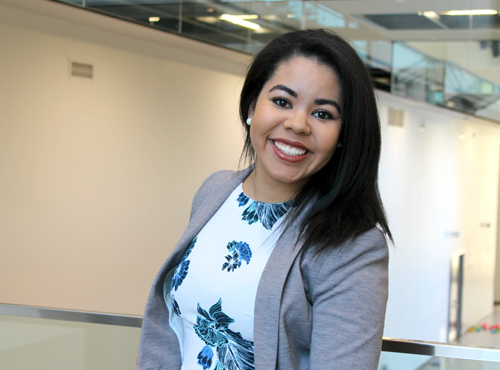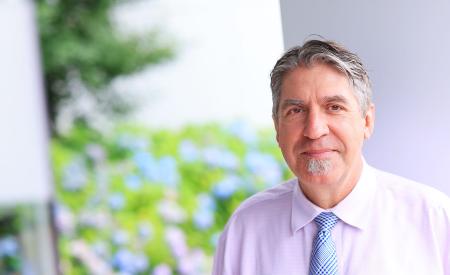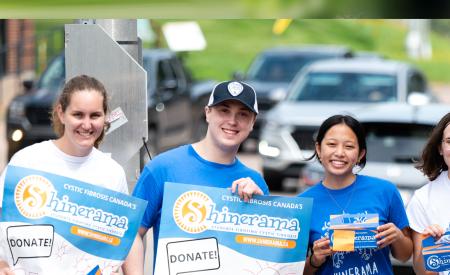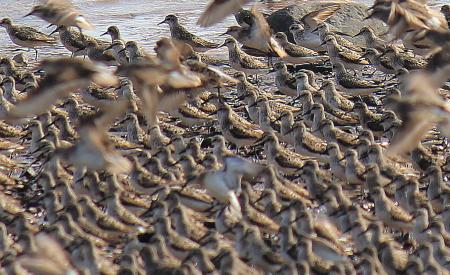5Q with honours commerce and psychology student Lydia Phillip
 1- You were recently recognized by Enactus Canada with the HSBC Woman Leader of Tomorrow – Atlantic award, which recognizes students who inspire their peers and community through entrepreneurial leadership. What are some of the activities you were involved in?
1- You were recently recognized by Enactus Canada with the HSBC Woman Leader of Tomorrow – Atlantic award, which recognizes students who inspire their peers and community through entrepreneurial leadership. What are some of the activities you were involved in?
I was part of Enactus, which is an organization made up of students, academics, and business leaders who use entrepreneurial action to make the world a better place. Within Enactus Mount Allison, I was the vice-president, marketing and communications and a project manager this past year. In this role I did a lot of mentoring. As I graduated in May, we needed someone to take over as project manager next year, so I fostered someone to do that.
Besides Enactus, I am a glider pilot instructor. I got my glider pilot’s licence at 16 years old and my private pilot’s licence when I was 17. I took the glider pilot instructor course when I was 19. Now I teach students from ages 15 to 17 how to fly gliders, which is a really fun and rewarding job. For this role, I am in a leadership position and I take that very seriously. I try to be a role model and someone who is a positive influence for my students and all the other cadets on the airfield.
As a glider pilot instructor, I am also part of the Canadian Armed Forces with the Cadet Instructor Cadre branch. My role within the Forces is to mentor Canada’s youth, so that is my specialty.
2- What projects did you work on with Enactus Mount Allison?
I was the manager of Solution Duck, a market research and business consultation firm. We have a lot of local clients, which I think is really cool because it is nice to leave something better in the community now that I've graduated. Solution Duck works with small businesses and entrepreneurs starting out who don’t have the funds to afford a large market research firm.
We offer our services for free and tailor these services to their needs. For some clients we do market research, for others we develop a marketing or business plan. It takes experiential learning to a whole new level. These are real clients and what we do really affects them. Our team of students specializes in different areas of business at Mount Allison and we have a business advisory board for Enactus to whom we can go to for assistance, Dr. (Sandy) MacIver and Dr. (Nauman) Farooqi in the Ron Joyce Centre for Business Studies.
3- What research did you do for your honours work?
I was interested in how stereotypes of certain groups affect a consumer’s anti-purchasing decisions. Most people know what brand loyalty is. What I studied is brand aversion or brand avoidance, which is essentially not wanting to be associated with certain brands. I looked at different brand avoidance behaviours, whether you switch from brands, don’t ever buy it, or talk about it negatively.
The stereotype I used is one that is very common among Millennials and Gen Z consumers and that is the ‘white girl’ stereotype or #whitegirl. It is a stereotype of consumers and it is based on the brands these consumers choose to interact with. For some consumers, this stereotype can be negative, while others embrace it. I was interested in researching consumers’ self-identification with the stereotype and how that affected emotions, relationships with the brand, and ultimately brand avoidance behaviours.
The stereotype can include anyone — guys or any race can be a 'stereotypical white girl.' One of the first questions in the survey I conducted gave a lifestyle description without saying what it was, and asked participants what words came to mind when they read this. Most people identified it as a “basic” white girl. The word “basic” for Millennials has a negative connotation and can be an insult.
4- What were your research findings?
First I reviewed the academic literature and found that brand aversion is not well studied. Most people study brand loyalty. Based on the literature, I also found that why people avoid brands may be even more important than why people purchase brands.
I found there is brand aversion and negative emotions towards brands. I used three popular brands and it was really interesting that they are implicated in this stereotype, as they are quality brands. According to the literature, the quality of the brand will not mitigate brand aversion if a consumer does not want to be associated with a stereotype. I found that people who do not identify with the stereotype are more inclined to practice brand avoidance.
5- Why did you choose to come to Mount Allison?
I was homeschooled and Mount Allison is very welcoming and accepting of non-traditional schooling. At other schools you have to jump through a lot of hoops. Also this has become a family tradition — my two older brothers went here, I go here, my younger sister is here. We are waiting to see where my youngest brother goes. I have absolutely loved my experience at Mount Allison.




